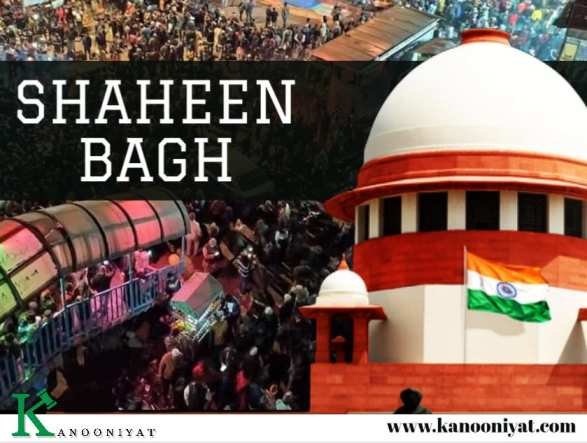Protesters cannot occupy public places indefinitely, the Supreme Court said this morning in a hugely influential verdict on a batch of petitions against the anti-citizenship law protests at Delhi’s Shaheen Bhaagh over the contentious Citizenship Amendment Act (CAA) that cleared the parliament last year. “Dissent and democracy go hand in hand,” the top court observed, stressing that “protests like these are not acceptable”.
“We have to make it clear that public places cannot be occupied indefinitely whether in Shaheen Bhaagh (in Delhi) or elsewhere. These sort of protests (like Shaheen Bagh) are not acceptable and (the) authorities should act… they must keep such spaces free from obstruction,” the top court said, adding the “administration cannot wait for orders from court to clear” the protest sites.
“We appreciate the right to peacefully protest and it can be (held) at designated places only,” the court stressed.
A three-judge bench of Justices SK Kaul, Aniruddha Bose and Krishna Murari delivered the judgment on a batch of petitions that called for a decision if there can be “an indefinite period of protests in a common area (that) creates inconvenience for others”.
The Court went on to note that it was the duty of the administration to remove such blockades of roads. The administration’s inaction in this regard warranted the Court’s intervention, the Bench held.
The administration must carry out its function of clearing out obstructions from roads and carriage ways and not wait for the Court’s order to do so, the order states.
Also Read: Delhi Court Orders To Provide Security To JNU Student Leader Umar Khalid In Prison
In light of the anti-CAA protests at Shaheen Bhaagh, two petitions were filed before the Supreme Court for the clearance of Kalindi Kunj Road, which is in proximity to the site of the protests. The first petition was filed by lawyer and activist, Amit Sahni. Sahni has prayed for certain specific directions for the removal of the blockage at the protest site of Shaheen Bhaag.
The second petition was filed by Nand Kishore Garg. He had sought the removal of protesters from the site on Kalindi Kunj Road.
The Shaheen Bhaagh protests had received worldwide attention and the Time Magazine honoured 82-year-old Bilkis dadi, the face of the movement, as one of the 100 “most influential people of 2020”.
Critics have said the contentious citizenship law – which the government says enables citizenship for non-Muslims from Pakistan, Bangladesh and Afghanistan if they escaped religious persecution and entered India before 2015 – is “anti-Muslim”.

